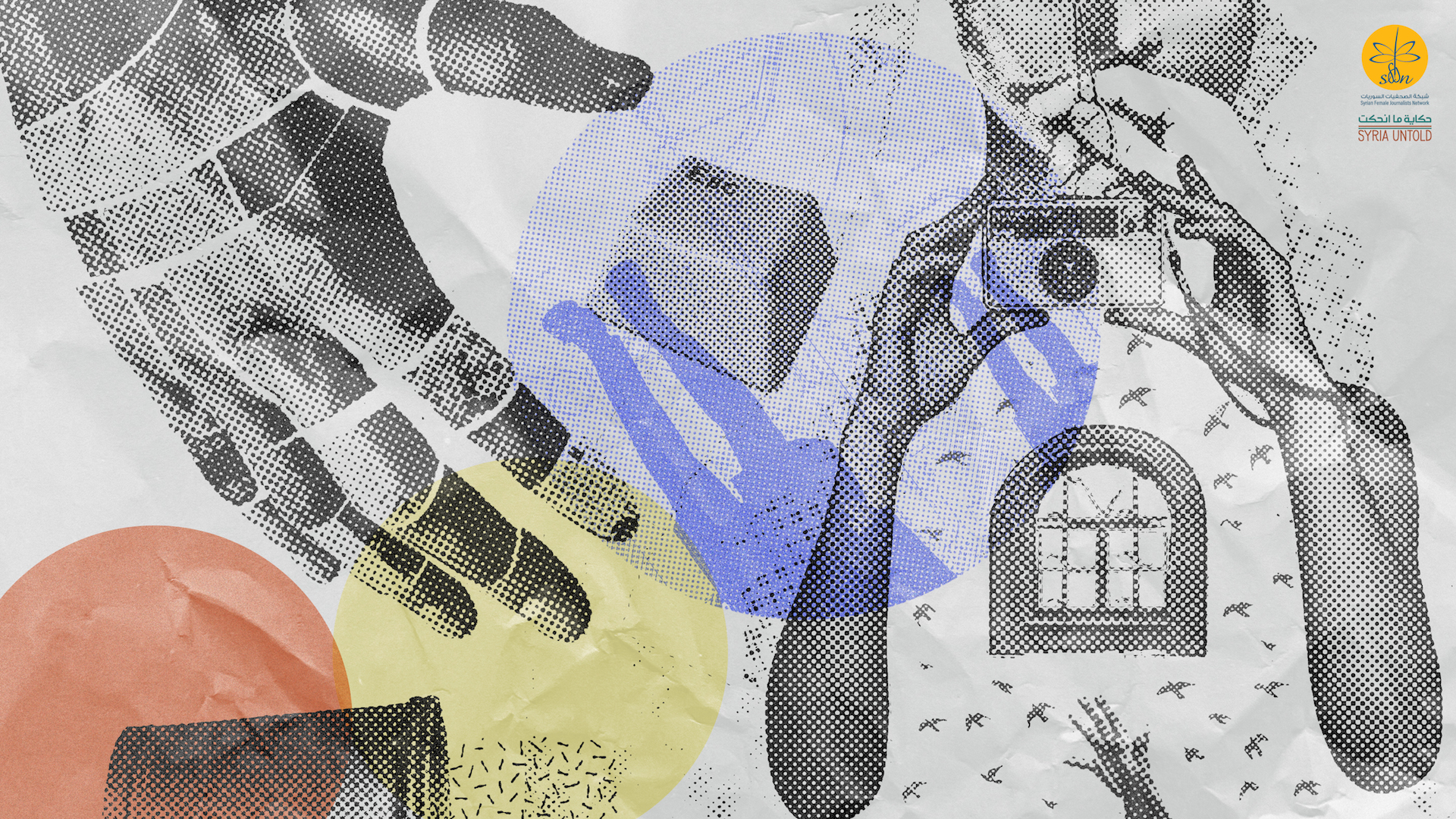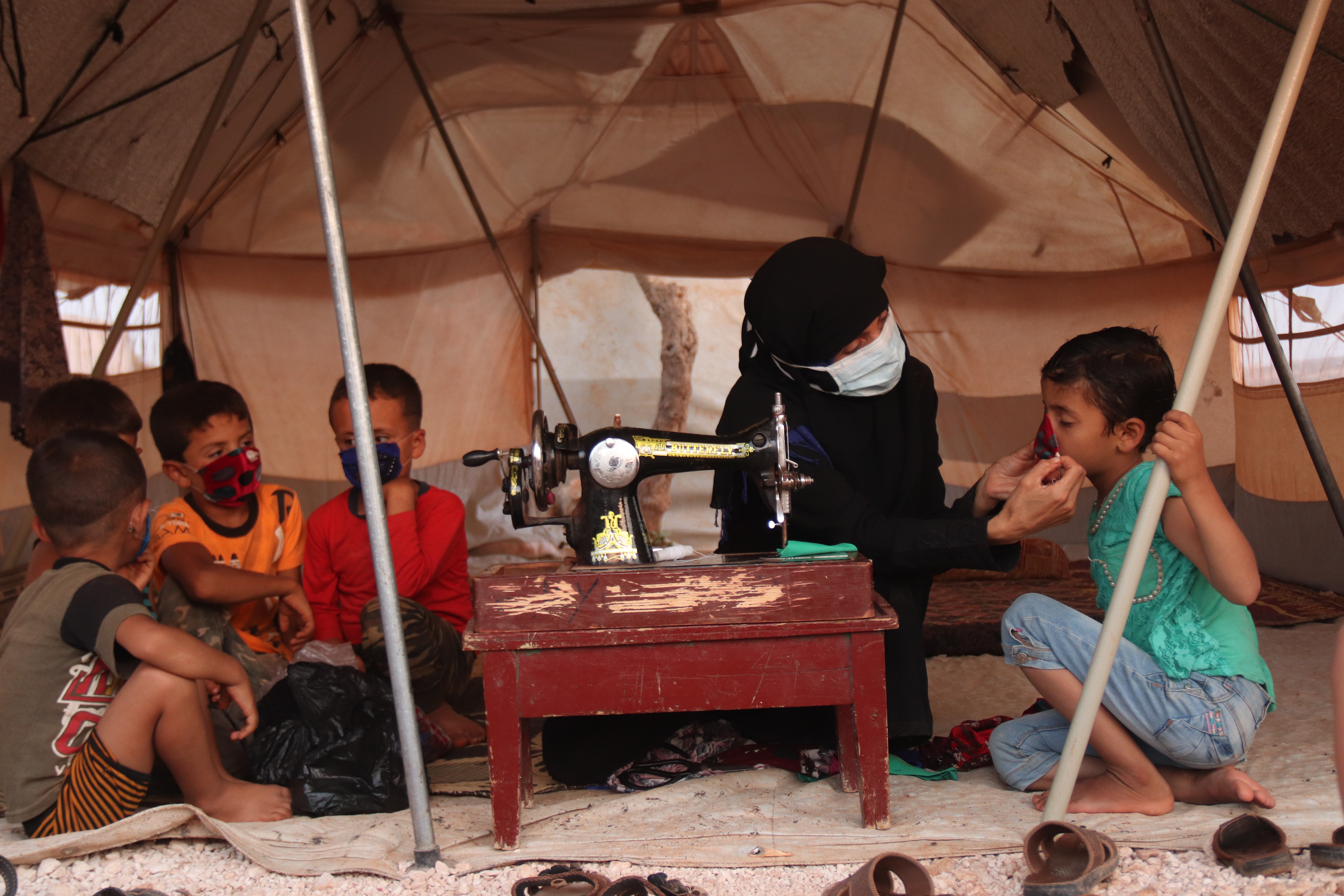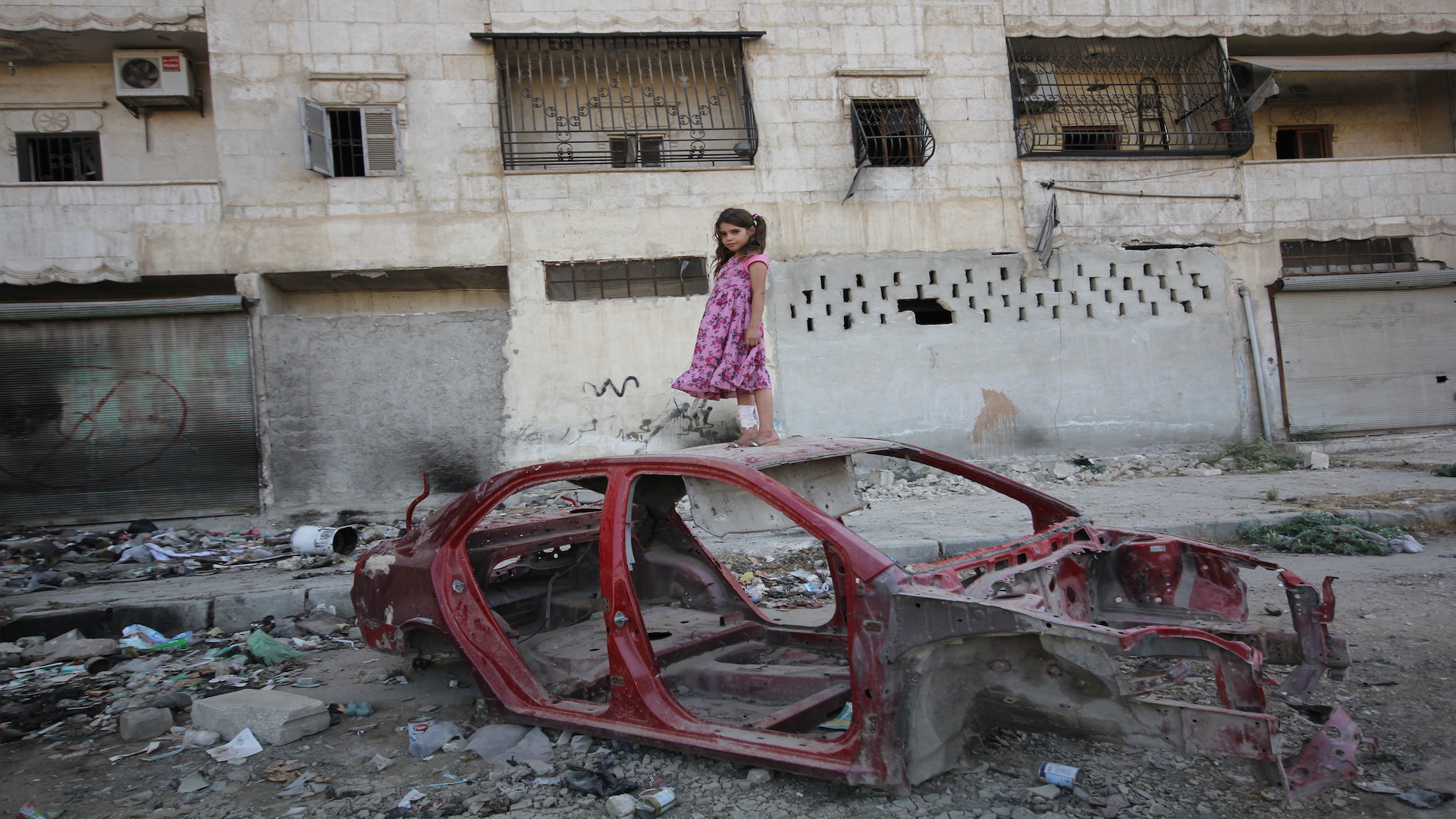Revolutionary wit (Newlines Magazine)
“Early in the Arab Spring, I saved my first screenshot of a revolution banner from Syria. This was before it became necessary to mark banners with dates and locations. Two young boys pulled the white fabric taut between them, the stark black Arabic letters stating, “If the price of freedom is a shroud, then it is with me.” I was stunned by the courage of this gesture steeped in meaning and symbolism. That was 2011 – long before the symbolism wore off and became Syria’s destiny. Since then, hundreds of thousands of Syrian lives have ended in such shrouds. Though the price has been paid many times over, freedom is nowhere to be found.” Read more
Review: Told from Syria to Brooklyn, ‘Thirty Names’ is a sensitive, multigenerational story (Datebook)
“‘The Thirty Names of Night’ is a sensitive, multigenerational story about Syrian immigrants that begins in Syria in the 1960s and winds its way into present-day Brooklyn. At its core is a mystery involving a suspicious death, a disappearance, a ghost and a very rare bird.
Its unnamed protagonist, a young trans artist struggling to understand the violent death of his mother five years earlier, is unable to paint since the recent appearance of his mother’s ghost.” Read more
Syria, masculinity and how the Assad regime's priorities have changed during pandemic (The Conversation)
In pictures: COVID-19 on the rise in northwestern Syria
14 November 2020
“When I picture Syria, the first thing I see in my mind’s eye are the statues of the late Syrian president, Hafez al-Assad, in military attire – there’s one in almost every square. But it’s not just statues in the urban spaces, this muscular image of the nation permeates popular culture – Syria is symbolically depicted in songs and stories as a nation of warriors. And, since the uprising in 2011, this link between Syrian masculinity and warrior status has, if anything, intensified.” Read more
Casualties from banned cluster bombs nearly doubled in 2019, mostly in Syria (The New York Times)
“Casualties from cluster bombs, the internationally banned weapons that kill indiscriminately, nearly doubled last year, mostly because of use by the Russian-backed armed forces of Syria in that country’s nearly decade-old war, a monitoring group reported on Wednesday.” Read more
Fabricator and fraudster (The Critic)
“The late Robert Fisk was as close to a celebrity as it is possible to get for a foreign correspondent. I vividly remember the moment I met him after a lecture in Beirut in 2010: for a young journalist in the first few months of my career, it was almost like meeting David Beckham. I also remember the words he said during that lecture: ‘The Middle East is not a football match. It’s a bloody tragedy, and the journalists have a responsibility to be on the side of those who suffer.’” Read more
Award-winning photojournalist injured covering Paris protest (AFP)
“News outlets including Agence-France Presse joined media rights campaigners Sunday in denouncing the injury of an award-winning Syrian photojournalist during a Paris protest against police brutality.
Ameer Alhalbi, a freelance photographer who has worked for Polka Magazine and AFP, was covering Saturday's demonstrations opposing police violence and the French government's plans to restrict sharing images of officers.” Read more
How Germany could indict Syria's Assad for war crimes (DW)
“In 2002, Germany enacted the principle of universal jurisdiction for international crimes, such as war crimes and genocide. It effectively brought German domestic law into accordance with the Rome Statute, a treaty that established the ICC that year.
Children at war: Reliving photos of east Aleppo
25 September 2020
My childhood friend, now a ghost
18 September 2020
By doing so, Germany extended its jurisdiction over ‘the most serious crimes affecting the international community as a whole,’ even if they were not committed within its territory or against its citizens. In Koblenz, the first case accusing Syrian regime figures of systematic torture opened in April as a result of Germany's universal jurisdiction.” Read more
Exclusive: Syrian general accused of war crimes 'given new life in Europe by Mossad' (The Telegraph)
“A senior Syrian official denied asylum in France due to concerns of possible involvement in war crimes was spirited out of the country with help from the Israeli secret service Mossad to Austria, where he was helped to start a new life, a top judicial source has told The Telegraph.” Read more
Driven out of Bsharri, Syrians seek refuge on the streets of Tripoli (L’Orient Today)
“With rain clouds thickening overhead, a few dozen Syrian refugees gathered Friday in the empty lot facing the entrance to the UN refugee agency’s office in Tripoli, where some of them had been sleeping since they were driven out of their houses in Bsharri four days earlier.
Clusters of women sat disconsolately on the curb as children milled around them, while the men, some still bearing bandages from the attacks that had forced them out of their homes, stood waiting — for what, they were not sure.
Some 270 Syrian families fled the idyllic mountain village Monday night after the killing of a local Lebanese man, Joseph Tawk, by a Syrian living in the area. The suspect, who authorities have identified only by his initials, M.H., was arrested soon after.” Read more
Carrying Home Within (Newlines Magazine)
“My relationship with my city is complicated. I still don’t understand my compassion for it. As a teenager, I was oppressed by the patriarchal conservativism of Idlibi society. There were very few things that girls were allowed to do back then without being shamed. They could go to school, visit their relatives, and join their mothers in the women-only evening gatherings known as ‘Isteqbal/Qabool’ — essentially a reception where women would dance and show off their cooking skills, gold jewelry, and their daughters. Women’s gatherings were the main drivers of arranged marriages.” Read more







